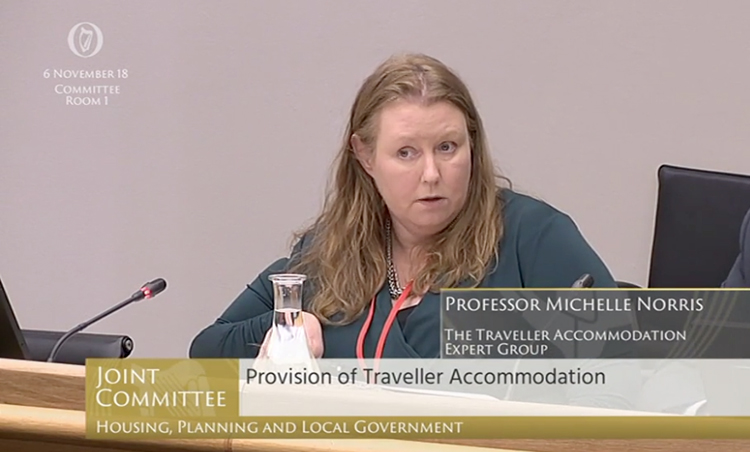Councils refusing to use Traveller housing funds could be sanctioned, Oireachtas Committee hears
Posted 7 November, 2018

- Nine councils did not drawn down any allocated funds for Traveller accommodation in 2017.
- Just 67% of the total budget for Traveller accommodation over the last ten years has been used.
Local authorities failing to spend funds earmarked for Traveller housing could face financial sanctions, an Oireachtas Committee heard.
Nine councils have not drawn down any allocated funds for Traveller accommodation in the last year, according to (opens in a new window)UCD Professor Michelle Norris.
These were Laois, Mayo, Monaghan, Westmeath, Longford, Wexford, Kildare, Galway and South Dublin county council.
The Oireachtas Housing Committee heard suggestions from the social policy expert that councils not delivering could face budget cuts to encourage them to remember their responsibilities.
"Some local authorities have drawn down almost all the money available, and then some local authorities have a low draw down rate," said Professor Norris, from the UCD School of Social Policy, Social Work and Social Justice.
“If we continue with the situation where there is such uneven delivery the problem will never be resolved.”
“Solutions like sanctions are something we will definitely be examining,” she added.
In the last two years, more than €14.5 million has been allocated to the 31 local authorities for Traveller accommodation.
Data supplied to the committee showed that just 67% of the total budget for Traveller accommodation over the last ten years has been drawn down.
Professor Norris is a member of a three-person expert committee, established earlier this year by the Government, to review local authorities’ delivery of Traveller accommodation.
Addressing concerns regarding the balancing of communities’ wants and needs, she told the committee that “some intervention” could be required in those local authorities where housing for Travellers was not being delivered.
Asked if removing the Traveller accommodation function from local authorities would be a solution, the UCD academic said that it was something only worth considering as "a last resort recommendation".
“Policy nationally, and funding, has improved and been honed a lot over the past 20 years,” said Professor Norris.
“The issue is with the implementation of policy and particularly the differential between local authorities in implementation.
“It’s about bringing people with us, not leaving anyone behind, from all communities. We do that through clear communication and leadership.
“That leadership has to come from the local authority. They are best placed to know the demographics, know the need and the want in their community.”
By: David Kearns, Digital Journalist / Media Officer, UCD University Relations






